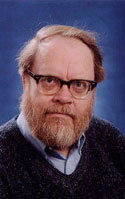
Contact Information
M/C 716
Champaign, IL 61820
Research Areas
Research Description
I am currently carrying out research in five broad areas: Knowledge Representation, Structure of Discourse, Human Memory, Knowledge Acquisition, and Psychology of Science . My work in the area of knowledge representation has focused on the study of complex forms of representation. I have, over the years, carried out a broad program of theoretical and empirical work on the nature of these complex forms of representation and the differences between generic knowledge structures such as schemas and knowledge structures that are not precompiled such as mental models. Structure of Discourse One of the major trends of research on language in the last decade has been an extension of the initial work on words and syntax to include the complex issues of discourse and language use. My work in this harea has been directed at these higher-order discourse phenomena and, in particular, on the nature of stories. Much of this research was carried out with Ed Lichtenstein. This program of research has involved theory development, empirical studies of adults and children, and cross-cultural work. III. Memory Two of the major trends in memory research over the last decade have been the investigation of the impact of knowledge on the memory process and the widening of the forms of memory that are studied. In this area I have carried out work on: (a) the interactions of memory and knowledge, (b) research on autobiographical memory, and (c) research on the phenomenal experiences that are involved in carrying out various forms of memory tasks. Brewer, W. F. (1986). What is autobiographical memory? In D. Rubin (Ed.), Autobiographical memory (pp. 25-49). Cambridge: Cambridge University Press. Brewer, W. F. (1988). Memory for randomly sampled autobiographical events. In U. Neisser & E. Winograd (Ed.), Remembering reconsidered: Ecological and traditional approaches to the study of memory (pp. 21-90). Cambridge: Cambridge University Press. Brewer, W. F. (1996). What is recollective memory? In D. C. Rubin (Ed.), Remembering our past: Studies in autobiographical memory (pp. 19-66). Cambridge: Cambridge University Press. IV. Knowledge Acquisition The initial focus of research in cognitive psychology and cognitive science was on the issue of knowledge representation with little concern about how the knowledge was acquired. In the last few years I have spent a considerable part of my time and energy in attempting to rethink the traditional issues of learning in terms of the general issue of how new knowledge is acquired. This line of research can be thought of as the cognitive embodiment of traditional learning theory. In particular my work has focused on the issue of large scale conceptual change in children's acquisition of knowledge in the area of observational astronomy (much of this work was carried out with Stella Vosniadou). Vosniadou, S., & Brewer, W. F. (1992). Mental models of the earth: A study of conceptual change in childhood. Cognitive Psychology, 24, 535-585. <figure> Vosniadou, S., & Brewer, W. F. (1994). Mental models of the day/night cycle. Cognitive Science, 18, 123-183. Chinn, C. A., & Brewer, W. F. (1993). The role of anomalous data in knowledge acquisition: A theoretical framework and implications for science instruction. Review of Educational Research, 63, 1-49. V. Psychology of Science My most recent line of research is the study of the psychology of the scientist. I initiated this new project because I think that the area of cognitive psychology has matured to the point where it is possible to apply theory and data from cognitive psychology to understand various issues in the study of science, e.g., psychological responses to anomalous data (much of this work has been carried out with Clark Chinn), distortions in scientific texts, claims made by philosophers about the theory-laden nature of observation, etc. Brewer, W. F., & Samarapungavan, A. (1991). Children's theories vs. scientific theories: Differences in reasoning or differences in knowledge?. In R. R. Hoffman & D. S. Palermo (Eds.), Cognition and the symbolic processes: Applied and ecological perspectives (pp. 209-232). Hillsdale, NJ: Erlbaum. Brewer, W. F., & Lambert, B. L. (1993). The theory ladenness of observation: Evidence from cognitive psychology. Proceedings of the Fifteenth Annual Conference of the Cognitive Science Society (pp. 254-259). Hillsdale, NJ: Erlbaum. Brewer, W. F., & Chinn, C. A. (1994). Scientists' responses to anomalous data: Evidence from psychology, history, and philosophy of science. PSA 1994, (Vol. 1) (pp. 304-313), East Lansing, MI: Philosophy of Science Association.